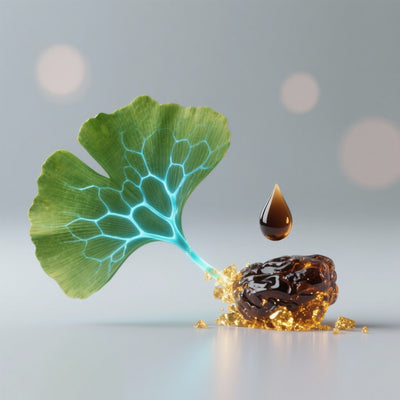What is testosterone? Understanding the key hormone of male and female desire
Often reduced to mere virility and muscularity, testosterone is far more complex and crucial than commonly believed. This steroid hormone, far from being the exclusive domain of men, plays a fundamental role in the balance, energy, and desire of both sexes. Feeling tired, with a low libido, or struggling to maintain your vitality? The answer might lie in your hormone levels. In this comprehensive article, we'll debunk the myths, explore the vital role of testosterone in men and women, and provide you with concrete tools to maintain a healthy balance, a source of well-being and vitality.
What exactly is testosterone?
To understand its impact, you first need to know what it is. Testosterone is the primary male sex hormone (androgen), but it is also present and essential in women. Produced mainly by the testicles in men, the ovaries in women, and in smaller quantities by the adrenal glands in both sexes, it acts like a true conductor in our bodies. Its role is not limited to simple reproduction; it influences our mood, our muscle and bone mass, our red blood cell production, and, of course, our libido .
A powerful chemical messenger
Imagine testosterone as a messenger that travels through your bloodstream to deliver instructions to various cells. It binds to specific receptors to trigger physiological changes. From fetal life onward, it is responsible for the development of male sexual characteristics. At puberty, its peak production causes the voice to deepen, body hair to grow, and muscle mass to develop. Throughout life, it continues to regulate metabolic functions essential for overall health.
The Role of Testosterone in Men: Much More Than Muscles
In men, the association between testosterone and virility is well known. However, its functions are much broader and directly impact daily quality of life.
The pillars of men's health
- Sexual health and libido: This is its most well-known role. An adequate level of testosterone is essential for sexual desire (libido), the quality of erections, and sperm production.
- Muscle and bone mass: It stimulates protein synthesis, promoting muscle growth, and plays a crucial role in bone density, preventing osteoporosis.
- Energy and mood: Low testosterone levels are often associated with chronic fatigue, irritability, and even depressive symptoms. Testosterone contributes to a general feeling of vitality and confidence.
- Cognitive functions: Studies suggest a link between testosterone and certain cognitive functions, such as spatial memory and concentration.
Testosterone: The Forgotten Hormone of Female Desire
Perhaps the biggest misconception about this hormone is its crucial importance for women's health. Although produced in quantities approximately 10 to 20 times lower than in men, testosterone is just as essential for their hormonal balance.
A delicate but essential balance
In women, testosterone directly contributes to muscle strength, bone health, and, most importantly, sexual desire. A drop in testosterone, often observed around menopause but not exclusively, can result in a significant decrease in libido, persistent fatigue, and brain fog. It works in synergy with estrogen to regulate mood and overall well-being.
"Ignoring the role of testosterone in women means missing a key piece of their hormonal puzzle. For many patients complaining of unexplained fatigue and loss of desire, optimizing their androgen levels, in a safe environment, can be transformative."
– Dr. Hélène Lambert, Endocrinologist (fictional quote for illustrative purposes)
Demystifying Testosterone: 3 Common Myths
There are many misconceptions about testosterone. It's time to set the record straight to better understand how it works and its importance.
- Myth 1: It is a 100% male hormone.
- FALSE. As we have seen, it is vital for women's health, particularly for libido, energy, and bone density. Balance is key.
- Myth 2: The more you have, the better.
- FALSE. Excess testosterone, often linked to doping or certain medical conditions, can be dangerous. It can lead to cardiovascular risks, severe acne, hair loss, and aggression. The goal is to reach an optimal and balanced level, not a maximum.
- Myth 3: Only athletes need to worry about it.
- FALSE. While it is essential for athletic performance, its impact on daily energy, mental clarity, mood and overall health concerns absolutely everyone, men and women, sedentary and athletes alike.
How to Maintain a Healthy Testosterone Level Naturally?
Before considering medical solutions, understand that your lifestyle is the primary factor in optimizing your hormone production. Here are some proven strategies accessible to everyone.
- Adopt a nutrient-rich diet: Favor foods rich in zinc (oysters, red meat, pumpkin seeds), vitamin D (oily fish, moderate sun exposure) and good fats (avocados, nuts, olive oil), which are precursors to steroid hormones.
- Prioritize quality sleep: It's during deep sleep that your body produces the majority of its testosterone. Aim for 7 to 9 hours of restorative sleep per night. Chronic sleep deprivation is a proven hormonal disruptor.
- Engage in regular physical activity: Resistance exercises (weight training) and high-intensity interval training (HIIT) are particularly effective in stimulating testosterone production.
- Learn to manage your stress: Chronic stress raises cortisol, a hormone that has an inverse relationship with testosterone. When cortisol is high, testosterone tends to fall. Meditation, yoga, or simple breathing exercises can make a big difference.
- Limit alcohol and maintain a healthy weight: Excess alcohol and being overweight (especially abdominal fat) can disrupt hormonal balance and promote the conversion of testosterone into estrogen.
Frequently Asked Questions about Testosterone
When should I see a doctor?
If you experience a combination of persistent symptoms such as extreme fatigue, a drastic decrease in libido, mood swings, muscle loss, or difficulty concentrating, it's a good idea to talk to your doctor. A simple blood test can measure your total and free testosterone levels.
Is age the only factor in decline?
No. While aging is a natural cause of decline, lifestyle plays a major role. Stress, poor diet, lack of sleep, and a sedentary lifestyle can accelerate this decline at any age.
Are testosterone “booster” dietary supplements effective?
Caution is advised. Many products on the market have unproven efficacy. However, supplements of specific nutrients such as zinc, magnesium, or vitamin D may be beneficial if you have a confirmed deficiency. Always consult a healthcare professional before starting any supplementation.
Conclusion: Testosterone, a question of balance
Testosterone is much more than the "alpha male" hormone. It's a fundamental regulator of our vitality, desire, and well-being, whether we're men or women. Understanding its role and adopting a lifestyle that promotes its natural balance is one of the most powerful keys to feeling energetic and fulfilled at every stage of life.
And you, were you aware of the importance of this hormone for your overall balance?











